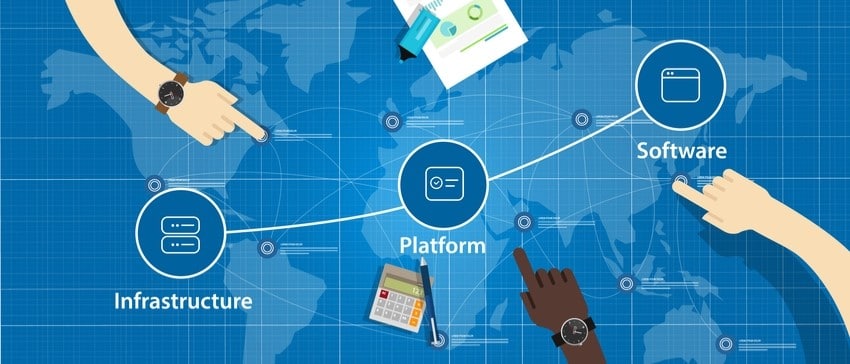What is your invoice processing timeline? 21 days, 14 days, 7 days? For the average SMB in America, manually processing invoices can take up to 25 days.
In an age where automation exists, such invoice processing lifecycles are unacceptable, not to mention costly!
So, if you’ve been wondering why to use electronic invoice management software and what the advantages of automating invoice processing are, you’re in the right place.
We’re going to explore what automated invoice processing is, why you need to invest in this software, and the overall benefits to be had.
Without further ado, let’s get into it!
What is Automated Invoice Processing?
Automated invoice processing is the process entailing the receipt of a vendor invoice via a digital medium, reconciling the invoice against the original purchase order, payment of the invoice, and recording of the transaction.
With digital transformation becoming a top priority for most enterprises, it follows those businesses that want to stay relevant need to seriously consider invoice process automation.
The use of emerging technologies boosts efficiency and accuracy and can usher in cost savings within the entire invoice processing life cycle.
Top 5 Advantages of Automating Invoice Processing
So, apart from accuracy and efficiency, what are some of the other advantages of automating invoice processing? Let’s take a look.
Advantage #1 Automating invoice processing is cost-efficient
Manual processing of invoices costs a fair bit of money – as much as $30 per invoice.
How is this possible? Think of the associated printing and mailing fees, accumulated interest alongside late penalty fees, and also the labor expenditure.
Thankfully, automation can help businesses significantly cut back on most of these overheads and bring costs down to about $3 per invoice. That’s approximately a 97% decrease.
Making the switch is clearly in the best interests of your overall bottom line.
Advantage #2 Automating invoice processing encourages efficiency
If you were to measure how efficient your current invoice processing procedure was on a scale of 1 to 10, how well would it score?
For the majority of firms still stuck with legacy invoicing systems, human error is undoubtedly one of the biggest challenges in terms of efficiency. Human fallacy acts as a cog in your business, lowering your efficiency.
Poor efficiency leads to late payments, which according to Insurance company, Atradius affects up to 90% of businesses in the United States.
By having an automated invoice process, the accuracy of your invoices is enhanced and you have better process control, visibility, and accountability.
Advantage #3 Automating invoice processing saves time
Manual invoice processing takes time and that’s because several steps are involved:
· Extraction of data from supplier invoices
· Entry of extracted data and invoice coding
· Validation of and cleaning up of extracted data
· Wait time after the invoice has been sent for final approval
On average this analogous process can take up to 90 days per invoice – longer if errors are detected!
Automated solutions not only reduce invoice approval by days but sometimes even down to minutes. And that’s because the software has the ability to quickly calibrate tasks that would take humans longer to verify.
Learn more about: How to manage orders by using online purchase order software
Advantage #4 Automating invoice processing improves overall profitability
Invoice fraud is a real menace and one that businesses large and small have to contend with. How common is invoice fraud you’re asking? Abnormal Security reports that in Q2 and Q3 of 2020, invoice fraud went up by a staggering 81%.
Today’s fraudsters impersonate vendors and even senior management by sending tailored invoices to the finance department who unwittingly release payment to a fraudulent bank account.
Automating invoice processing is one way to combat invoice fraud. Before an invoice is paid out, it is easily verified against any purchases. If a purchase order has not been recorded and no goods and services have been delivered or rendered, the invoice is highlighted as suspicious.
The centralization of invoices in a singular database also makes it difficult to slip in fake or fraudulent invoices.
Advantage #5 Automating invoice processing promotes compliance
Ensuring your business is tax compliant is paramount to smooth operations. Traditionally, invoices have always been used during auditing as a way to confirm a company’s purchase history. However, paper invoices have always been difficult and costly to generate and store.
In fact, according to the World Bank, automated invoice processing is one solid way of guaranteeing tax compliance and even mitigating related costs by 39%.
Businesses can now sigh in relief as they have been delivered from having to deal with lost invoices and the burden of renting out expensive warehouse storage space.
It’s clear to see then that automation cuts back on the chances of losing invoices, the need for costly storage, and makes retrieval of invoices as and when they are required a hassle-free affair.
The Bottom Line
Automating invoice processing greatly expedites your workflow. If you’re serious about streamlining your accounts payable then adopting a digital solution should not be overlooked.
We’ve assessed the advantages of automated invoice processing and have seen how digital invoicing software promotes compliance, secure invoice archiving, faster payments, and visibility.
If you would like to discuss in greater depth why you should use electronic invoice management software, don’t hesitate to reach out to one of our ProcurePort consultants.
Our solutions are trusted and used by enterprises and organizations such as UNOPS, HUD.GOV, and conEdison.
Contact us today.










